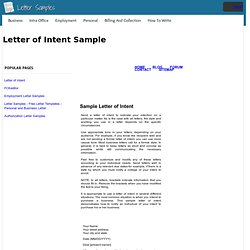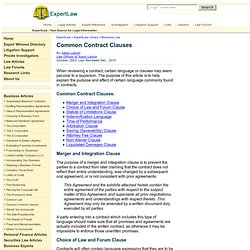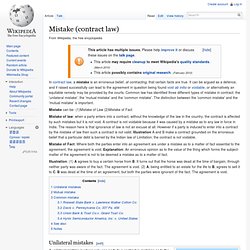

Letter of Intent Sample. Send a letter of intent to indicate your intention on a particular matter.

As is the case with all letters, the style and wording you use in a letter depends on the specific circumstances. Use appropriate tone in your letters, depending on your audience. For example, if you know the recipient well and are not sending a formal letter of intent, you can use more casual tone. Most business letters call for a formal style. In general, it is best to keep letters as short and concise as possible while still communicating the necessary information. Feel free to customize and modify any of these letters according to your individual needs. NOTE: In all letters, brackets indicate information that you should fill in. It is appropriate to use a letter of intent in several different situations. Your Name Your street address Your city and state Date (MM/DD/YYYY) Dear [present owner]: We would like to meet with you next Thursday, June 3rd, to finalize the sale.
Sincerely, [Signature] Typed name. Common Contract Terms Explained. Hiring the right personal injury attorney to represent you is critical and can literally make or break your case.

When meeting with an attorney for the first time, there are a lot of questions that need to be asked to decipher if an attorney is a viable fit for your case, and for you personally. The following are the top ten questions that should be discussed in your first meeting with a personal injury lawyer: How many years have you practiced law, specifically personal injury? Your prospective personal injury attorney should not be a novice, but a trained, seasoned professional. Younger attorneys, although they may be used to perform some of the work on your case, should not be given full case-management authority until they have a little more experience under their belt.Have you taken cases like mine to trial or settlement, and if so, how many? Contract Law - Contracts, Party, Parties, Legal, Agreement, and Terms. Contracts Basics - Small Business. Most businesspersons enter into contracts more frequently than they may realize.

In almost all business dealings, any time you or your company agree to take some action or make a payment in exchange for anything of value, a legal contract has been created. For example, most bills of sale, purchase orders, employment agreements, and other common business transactions are legally enforceable contracts. Following is a discussion to help you understand the basics of contracts. Common Contract Clauses. By Aaron Larson Law Offices of Aaron Larson October, 2003; Last Reviewed Dec., 2010.

When reviewing a contract, certain language or clauses may seem peculiar to a layperson. The purpose of this article is to help explain the purpose and effect of certain language commonly found in contracts. Common Contract Clauses: Merger and Integration Clause The purpose of a merger and integration clause is to prevent the parties to a contract from later claiming that the contract does not reflect their entire understanding, was changed by a subsequent oral agreement, or is not consistent with prior agreements: This Agreement and the exhibits attached hereto contain the entire agreement of the parties with respect to the subject matter of this Agreement, and supersede all prior negotiations, agreements and understandings with respect thereto. Choice of Law and Forum Clause This agreement shall be interpreted under the laws of the State of California.
Statute of Limitations Clause Indemnification Language. Mistake (contract law) Mistake can be- (1)Mistake of Law (2)Mistake of Fact Mistake of law: when a party enters into a contract, without the knowledge of the law in the country, the contract is affected by such mistakes but it is not void.

A contract is not voidable because it was caused by a mistake as to any law in force in India. The reason here is that ignorance of law is not an excuse at all. However if a party is induced to enter into a contract by the mistake of law then such a contract is not valid. Illustration A and B make a contract grounded on the erroneous belief that a particular debt is barred by the Indian law of Limitation; the contract is not voidable. Mistake of Fact: Where both the parties enter into an agreement are under a mistake as to a matter of fact essential to the agreement, the agreement is void. Illustration: (1) A agrees to buy a certain horse from B. Company Activities & Management > Contracts & Bids from AllBusiness.
Every contract contains an offer, acceptance, and consideration.

Find out what these and other contractual terms mean by browsing through this list of key contract definitions: Acceptance: When you accept an offer, it must be an unconditional and unequivocal acceptance to the exact terms of the offer. If not, it becomes a counteroffer. Arbitration: Arbitration clauses set up provisions whereby independent and binding arbitrators settle contractual disputes. Boilerplate: Standard contract clauses use universal language as a type of template. Breach: When one party of the contract accuses the other party of not following the terms of the contract.
Conditions: Provisions of a contract that specify a particular occurrence. Consideration: Something of value that is bargained for and given in exchange for the promise contained in the offer.